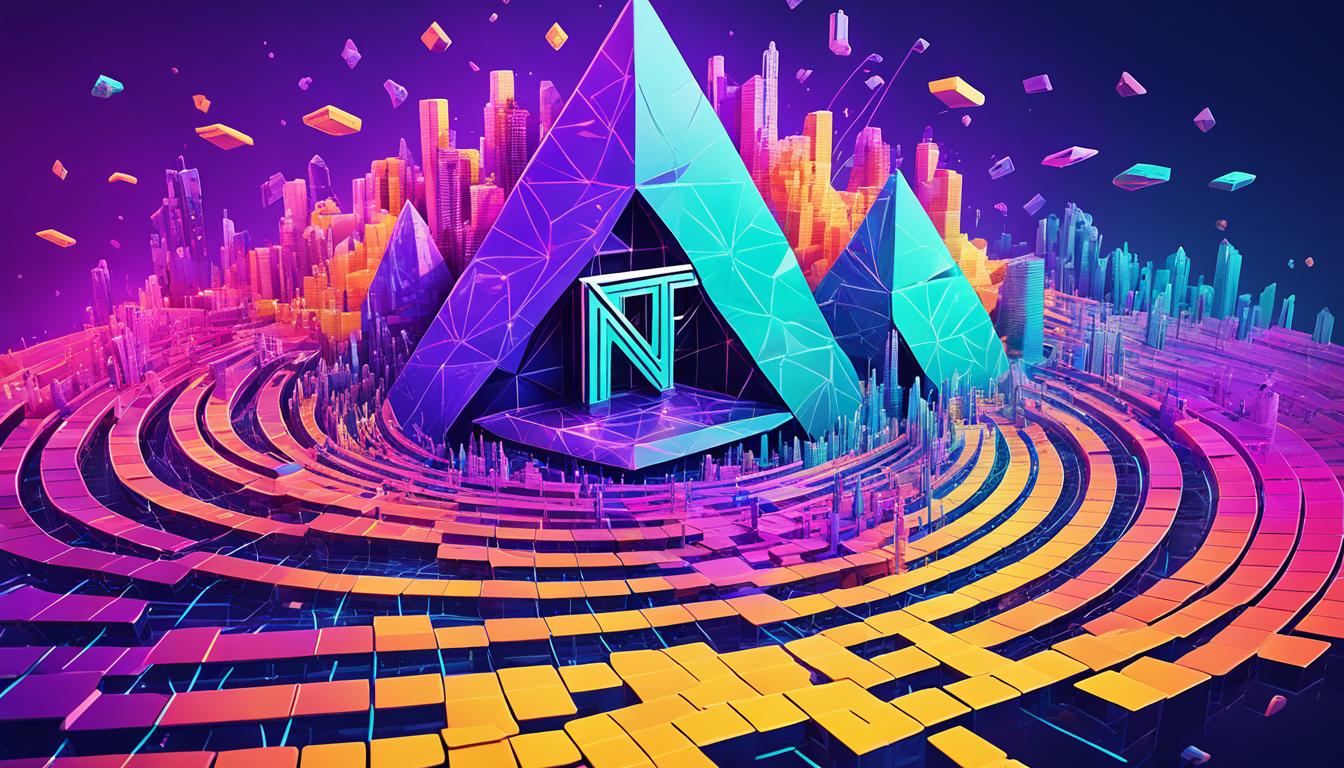Did you know that NFT royalties provide artists with a sustainable income in the digital space? With the rise of non-fungible tokens (NFTs), artists now have the opportunity to earn ongoing royalties on their work, even after it has been sold. This revolutionary concept has transformed the way artists can monetize their creations in the ever-evolving digital realm.
Key Takeaways:
- NFT royalties give artists the ability to earn ongoing income from their digital creations.
- These royalties are paid out automatically through smart contracts on blockchain platforms.
- NFT royalties differ from traditional royalty systems and can be paid in cryptocurrencies.
- The importance of NFT royalties lies in providing artists with financial stability and recognition for their contributions.
- The future of NFT royalties depends on the commitment of marketplaces to enforce royalty mechanisms and ensure fairness for artists.
What are NFT Royalties and How Do They Work?
NFT royalties are a type of royalty system that applies to non-fungible tokens (NFTs), which are unique digital assets verified on a blockchain. When an NFT is resold on a marketplace, a percentage of the sale price is paid to the creator as a royalty.
The exact percentage of the royalty is determined by the creator at the time of minting the NFT. For example, an artist may set the royalty rate at 10%, meaning they will earn 10% of the sale price every time their NFT is resold.
NFT royalties are typically managed through smart contracts on blockchain platforms, which automate the payment of royalties to the creator. These royalties are often paid in cryptocurrencies such as Ethereum or Bitcoin.
Unlike traditional royalty systems, which are typically applied to physical assets, NFT royalties are applied to digital assets that can be bought, sold, and traded on a digital marketplace. This provides artists with ongoing income from their work, even after it has been sold, creating a recurring revenue stream and incentivizing continued participation in the digital art ecosystem.
By implementing NFT royalties, creators have the ability to earn income from the resale of their digital assets, ensuring they are fairly compensated for their work and allowing them to benefit from the increasing value of their creations in the secondary market.
NFT royalties also provide a transparent and decentralized system, as the smart contracts on the blockchain automatically track and distribute payments to the creators. This eliminates the need for intermediaries, reduces transaction costs, and ensures the accuracy and timeliness of royalty payments.
“NFT royalties enable artists to participate in the ongoing success of their work, building a sustainable income stream in the digital art landscape.” – Emily Johnson, digital artist
Benefits of NFT Royalties:
- Provides ongoing income for creators from the resale of their work
- Encourages continued participation in the digital art ecosystem
- Eliminates the need for intermediaries, reducing transaction costs
- Ensures accurate and timely royalty payments through smart contracts
- Creates a transparent and decentralized system for royalty distribution
NFT royalties have revolutionized the way artists earn income in the digital space, providing a fair and sustainable model that benefits both creators and collectors. As the popularity of NFTs continues to grow, the implementation and enforcement of NFT royalty mechanisms will play a key role in shaping the future of the digital art industry.
The Importance and Future of NFT Royalties
NFT royalties play a critical role in supporting artists and shaping the future of the digital art landscape. By providing artists with a sustainable income stream, NFT royalties enable them to participate in the long-term success of their creations. This ensures that artists who put their time, talent, and creativity into their digital artworks can continue to be rewarded for their contributions.
Moreover, NFT royalties enhance the overall value of NFTs for collectors. When collectors invest in an NFT, they not only acquire a unique piece of digital art but also directly support the artists behind it. This creates a reciprocal relationship between artists and collectors, fostering a vibrant and sustainable NFT ecosystem.
Furthermore, the royalty mechanism implemented in NFTs establishes a fair and transparent system. It helps prevent unauthorized reproductions or counterfeit NFTs, ensuring that genuine creations are appropriately recognized and rewarded. By incorporating royalties into the NFT ecosystem, artists and collectors alike can trust that the system operates with integrity, fairness, and transparency.
Although challenges exist in enforcing NFT royalties, such as the lack of legal enforcement mechanisms for smart contracts, the future of NFT royalties depends on the commitment of marketplaces and the interoperability between NFT ecosystems. Marketplaces must prioritize the implementation and enforcement of royalty mechanisms to support artists’ sustainable income. Additionally, cross-platform compatibility will promote wider adoption and ensure the long-term viability of NFT royalties.
In conclusion
, NFT royalties have the potential to revolutionize how artists earn income in the digital space. With a focus on sustainability, fairness, and transparency, NFT royalties empower artists, reward collectors, and pave the way for a more equitable future in the world of digital art.

Leave a Reply